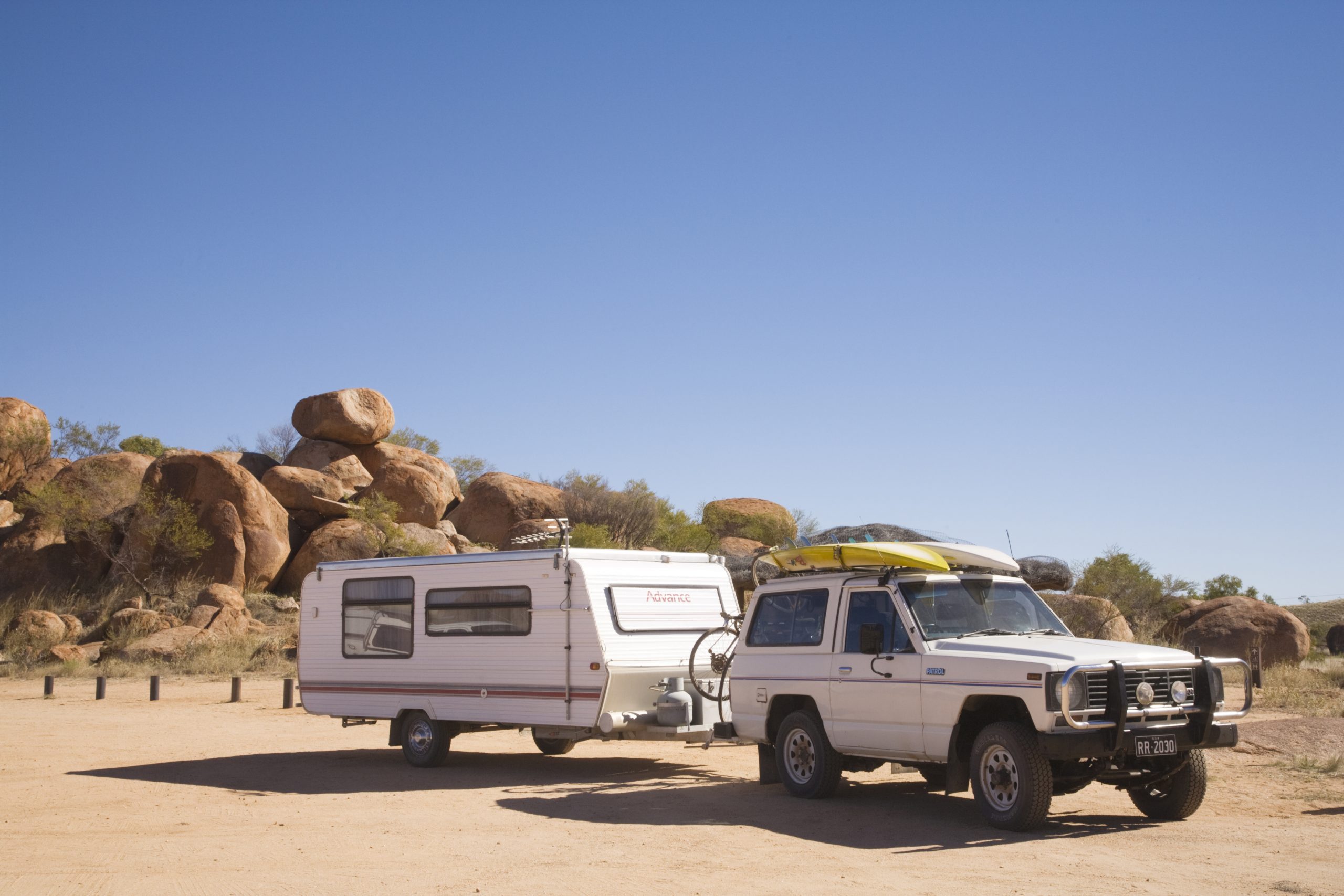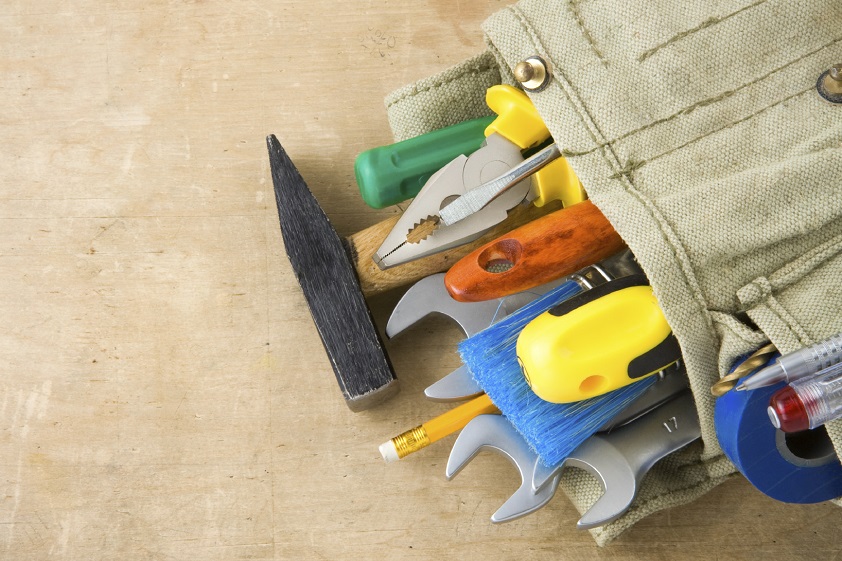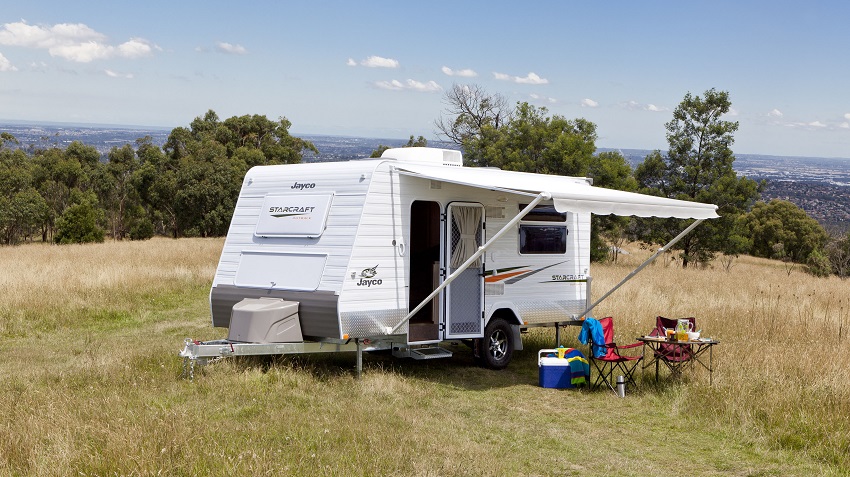Some of the finest aspects of touring Australia include the variety of the countryside and the ease with which we can leave the freeways to discover hidden pockets of natural beauty. Towing a trailer across the different terrain, however, requires skill and the right equipment. Here’s a guide to what you might need.
Understand the Conditions
Freeways make for relatively easy driving when towing caravans, with the only real danger coming from passing trucks or high winds causing a buildup of sway. Let’s look at how to handle other road conditions you might meet on your adventures.
- Unsealed roads: Slow down and watch for loose gravel and soft shoulders; they’ll play havoc with your traction. Resist the urge to speed over corrugations, as that also reduces traction.
- Narrow country roads: These might seem easy, but you never know when you’ll turn a corner to find cattle, kangaroos, deer or a wombat crossing the road. Likewise, bends can be sharper than they appear; remember that the trailer has a tendency to ‘cut’ corners, so take them wide.
- Hills and mountains: Expect that climbing will be slow, because you’re towing a heavy weight behind. Drive in the left lane when possible and pull over occasionally to let other vehicles pass. When going downhill with a heavy trailer behind, use the gears and engine braking to control your speed, even in an automatic. Engage a lower gear at the start of the descent, and if you have electric brakes, adjust the controller to a firmer setting. Brake firmly at intervals to maintain a steady speed so the brakes don’t overheat, lose effectiveness and make control impossible.
- On the beach: Before attempting to drive on sand while towing, lower tyre pressure to approximately 15 to 20 psi. Increase momentum on approach, then drive slowly and steadily in a lower gear. Have a snatch strap handy in case you do get bogged.
Driving Tips
- Braking:Slamming on the brakes when you’re towing a trailer of any size is likely to cause jackknifing. Anticipate the road conditions, slow down on the stretch before a bend, brake slowly and evenly, and use the vehicle’s gears when possible.
- Starting on an incline: Hill starts are probably best avoided altogether, but that’s not always possible – in which case you’ll need plenty of revs before releasing the handbrake. If you can, let the trailer wheels roll back against a kerb or sideways to the slope so the weight isn’t pulling against the tow vehicle as it gains traction. Alternatively, place chocks behind the wheels and attach them to the trailer so you don’t have to stop to retrieve them until you’re back on even ground again.
- Overtaking: Response time will be longer than you might be used to, so plan ahead and be prepared for a slower overtake. Consider dropping back then picking up speed before attempting it.
- Controlling sway: Avoid applying the brakes of the tow vehicle or trying to steer out of the sway; if your caravan has an electric brake system, use the manual control to slow it down. Maintain a constant speed until the swaying stops and the trailer straightens out again.
Be Prepared
Modern trailer technology has resulted in equipment and devices to help with most Australian road conditions, so there’s really no reason you shouldn’t go wherever you want.
- Sway control couplings clamp down on the sides of the towball, reducing any tendency for the trailer to sway or veer.
- Off-road coupling is specifically designed to offer 360-degree articulation so it will follow you anywhere.
- An electronic stability control system monitors for critical driving situations, such as swinging or a sudden lateral movement, and will immediately apply the caravan brakes until your caravan is under control.
- Quality “off road” trailer brakes are worth the investment.
- All tyres should have deep tread and be inflated to the right amount of pressure for the load you’re towing.
- Your vehicle must have the capacity to tow the weight of your fully loaded trailer.
Upskill Your Driving
No matter how well your rig is equipped, it still comes down to your skills as a driver.
- Take a towing course and make sure all drivers in the family enrol, as you never know when someone might need the skills.
- Know your trailer and understand how it handles different conditions.
- Pay attention to road signs and don’t go down a track without being sure your rig can handle it.
Always remember that you have extra weight connected to your tow vehicle by means of a towing hitch, so your vehicle will perform differently from normal. Have the best equipment you can afford and take it easy on whatever road you travel.
Is your tow vehicle up to towing in sand? Here are some of the best towing cars you can rely on in any situation.





